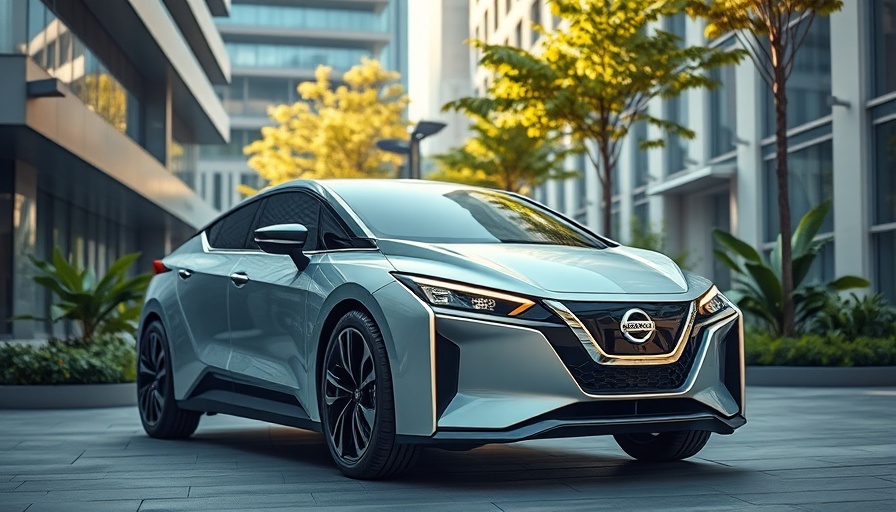
Nissan's Bold Move Towards American-Made EVs
In a strategic pivot, Nissan has announced its intentions to build future electric vehicles (EVs) in the United States, with significant backing from SK On, a South Korean battery supplier. This partnership underscores Nissan's commitment to revitalize its model lineup while addressing growing domestic demands for sustainable transportation solutions.
A $661 Million Investment in the Future
Nissan's $661 million investment in U.S.-manufactured batteries marks a significant milestone for the automaker, especially in light of its recent financial struggles. The agreement with SK On specifies the provision of approximately 100 gigawatt-hours (GWh) of batteries from 2028 to 2033, enhancing Nissan's ability to produce a new generation of EVs at its Canton, Mississippi, plant, which has already received $500 million in upgrades.
Meeting Market Demands Amidst Political Pressure
As electric vehicle sales increasingly dominate the market, Nissan finds itself adapting amidst political pressures such as potential tariffs on imported vehicles and parts. The U.S. has emerged as Nissan's highest market for vehicle sales, making this move not just strategic but necessary. By producing both the EVs and their batteries in the U.S., Nissan can reduce reliance on overseas production while capitalizing on the growing trend of U.S. consumers favoring domestically produced vehicles.
Exciting New Models on the Horizon
With an ambitious plan to launch 30 new models, approximately half of which are slated to be electric, Nissan's drive toward innovation is palpable. While specifics remain sparse, the 2024 announcement of all-new EVs offers a tantalizing glimpse into the brand's future.
Impact on Local Economy and Job Creation
The partnership with SK On is expected to boost the local economy significantly. With plans for SK On to expand its operations in the U.S., there will likely be thousands of jobs created as new factories come online, leading to a ripple effect benefiting various sectors including manufacturing and supply chain management.
Looking Ahead: Sustainability and Corporate Responsibility
Nissan's commitment to manufacturing its EVs domestically goes beyond mere economics; it reflects a broader trend of prioritizing sustainability and corporate responsibility. By investing in domestic production, Nissan not only strengthens its supply chain resilience but also aligns itself more closely with the U.S. government's environmental policies aimed at reducing carbon emissions.
What This Means for the Average Consumer
As Nissan shifts forward with plans for American-made EVs powered by U.S.-sourced batteries, consumers can expect enhanced vehicle options that are not only technologically advanced but also sustainable. This strategic partnership positions Nissan strongly in the competitive EV market, providing shoppers with more choices and reinforcing their commitments to environmental stewardship.
Nissan’s new chapter as it aims to reclaim its market presence while contributing positively to the economy and environment is a story to watch. Keep an eye on the evolving landscape of electric vehicles—Nissan’s endeavors represent a significant player in this rapidly changing industry.
 Add Row
Add Row  Add
Add 




Write A Comment